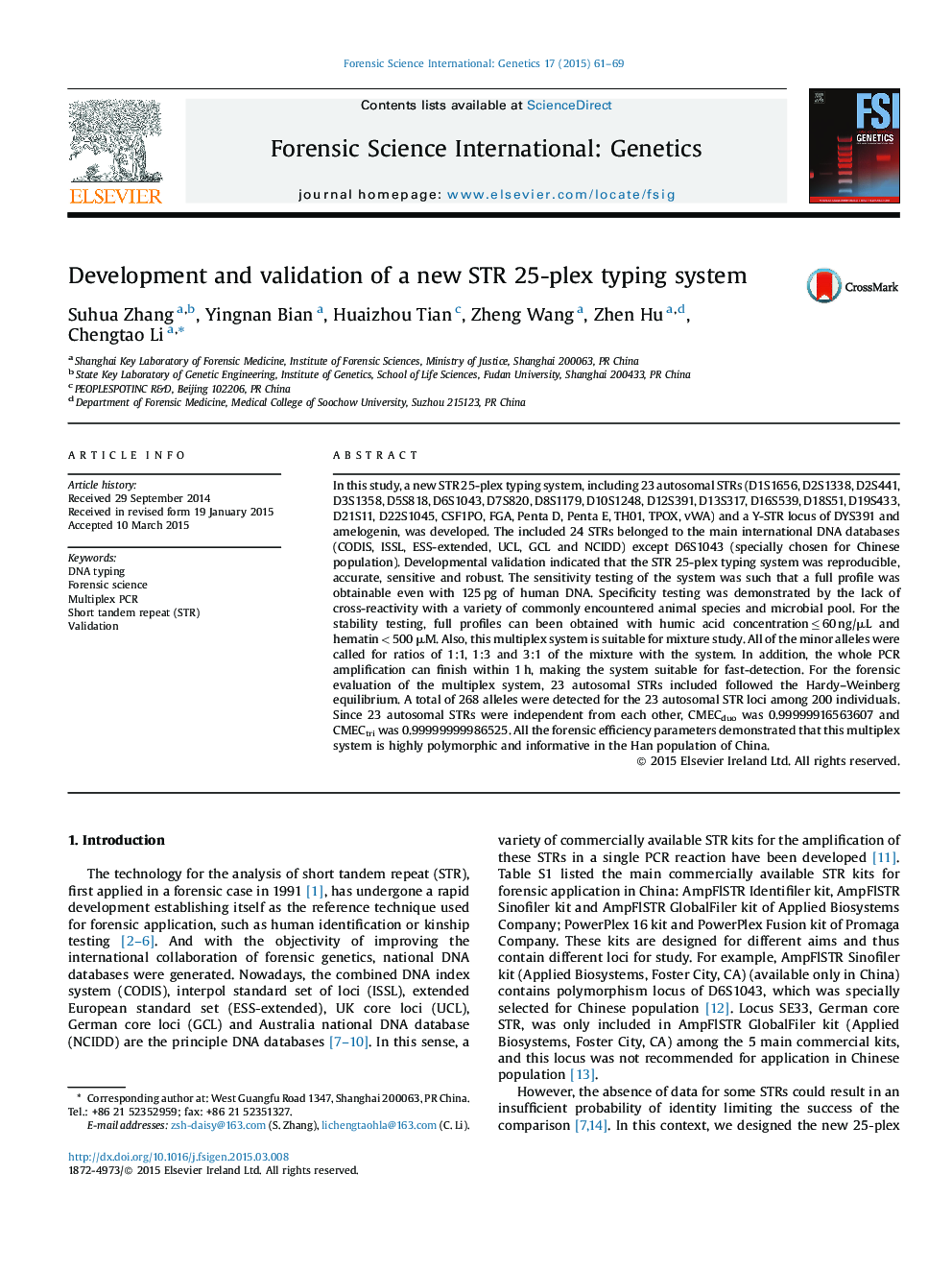| Article ID | Journal | Published Year | Pages | File Type |
|---|---|---|---|---|
| 6553734 | Forensic Science International: Genetics | 2015 | 9 Pages |
Abstract
In this study, a new STR 25-plex typing system, including 23 autosomal STRs (D1S1656, D2S1338, D2S441, D3S1358, D5S818, D6S1043, D7S820, D8S1179, D10S1248, D12S391, D13S317, D16S539, D18S51, D19S433, D21S11, D22S1045, CSF1PO, FGA, Penta D, Penta E, TH01, TPOX, vWA) and a Y-STR locus of DYS391 and amelogenin, was developed. The included 24 STRs belonged to the main international DNA databases (CODIS, ISSL, ESS-extended, UCL, GCL and NCIDD) except D6S1043 (specially chosen for Chinese population). Developmental validation indicated that the STR 25-plex typing system was reproducible, accurate, sensitive and robust. The sensitivity testing of the system was such that a full profile was obtainable even with 125 pg of human DNA. Specificity testing was demonstrated by the lack of cross-reactivity with a variety of commonly encountered animal species and microbial pool. For the stability testing, full profiles can been obtained with humic acid concentration â¤Â 60 ng/μL and hematin < 500 μM. Also, this multiplex system is suitable for mixture study. All of the minor alleles were called for ratios of 1:1, 1:3 and 3:1 of the mixture with the system. In addition, the whole PCR amplification can finish within 1 h, making the system suitable for fast-detection. For the forensic evaluation of the multiplex system, 23 autosomal STRs included followed the Hardy-Weinberg equilibrium. A total of 268 alleles were detected for the 23 autosomal STR loci among 200 individuals. Since 23 autosomal STRs were independent from each other, CMECduo was 0.99999916563607 and CMECtri was 0.99999999986525. All the forensic efficiency parameters demonstrated that this multiplex system is highly polymorphic and informative in the Han population of China.
Related Topics
Life Sciences
Biochemistry, Genetics and Molecular Biology
Genetics
Authors
Suhua Zhang, Yingnan Bian, Huaizhou Tian, Zheng Wang, Zhen Hu, Chengtao Li,
